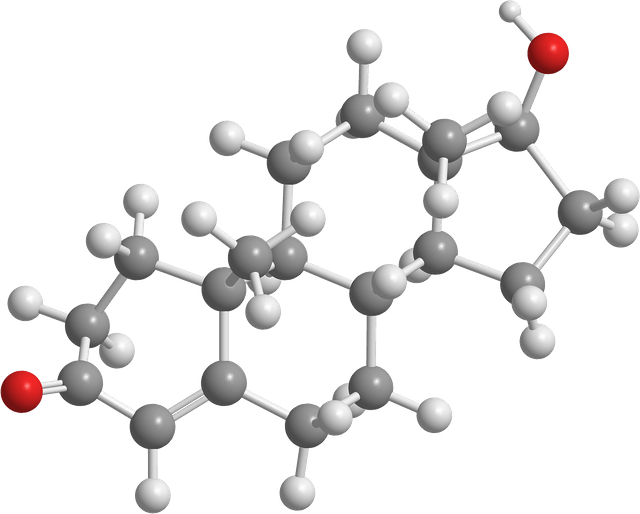The role of hormones in our body
Greetings dear stemians excited to share my thoughts
The Roles of Hormones in Our Body
When we hear the word “hormones,” many of us immediately think about teenagers, mood swings, or even stress. But in reality, hormones are much more than that. They are the tiny chemical messengers that keep our bodies running smoothly, silently influencing almost every function we can think of from how we grow to how we sleep at night.
In this post, let’s explore what hormones are, their essential functions, a few examples, and how we can keep them balanced to lead healthier lives.
What Are Hormones and What Are Their Functions?
Hormones are chemical substances produced by glands in our endocrine system. They travel through our bloodstream to tissues and organs, acting like messengers that tell different parts of the body what to do and when to do it. Without hormones, our bodies would struggle to function properly it would be like trying to drive a car without fuel, steering, or brakes.
The roles hormones play are vast and interconnected. They help regulate:
Growth and development
Metabolism (how your body gets energy from food)
Sexual function and reproduction
Mood and emotions
Sleep cycles
Body temperature and thirst
It’s fascinating to realize that such tiny molecules are behind so many major bodily processes, often without us even noticing.
Three Important Hormones and Their Roles
There are countless hormones in the body, each playing a unique role. Here are three key examples:
Insulin:
Produced by the pancreas, insulin helps regulate blood sugar levels. After eating, insulin signals cells to absorb glucose from the blood to use for energy or store for later. Without proper insulin function, conditions like diabetes can occur, leading to serious health issues.Cortisol:
Often called the “stress hormone,” cortisol is produced by the adrenal glands. It plays a role in controlling blood sugar, reducing inflammation, and helping with memory formulation. Cortisol also helps regulate the body's sleep-wake cycle and is crucial in managing how the body responds to stress.Estrogen:
Primarily known as the female sex hormone, estrogen is crucial not only for reproductive health but also for maintaining bone density, regulating cholesterol levels, and even influencing mood. Men also produce estrogen, but in smaller amounts.
Each hormone works like a thread in a much larger tapestry if one thread gets pulled too tightly or snaps, it can affect the entire pattern.
My Experience with Hormonal Imbalance
Hormonal imbalances are more common than many people realize. Personally, I once struggled with an irregular sleep pattern that, after much frustration and countless sleepless nights, was traced back to cortisol imbalance.
At first, I thought it was just stress or too much screen time. But over time, I noticed that no matter how tired I was, I couldn't fall asleep easily. I would often wake up feeling anxious or exhausted. After seeing a doctor, I learned that high cortisol levels, due to chronic stress and poor daily habits, were disrupting my natural sleep cycle.
It took time, but through lifestyle changes like reducing caffeine, practicing mindfulness, setting a regular bedtime, and taking evening walks, I was able to gradually reset my body's rhythm. That experience made me appreciate just how delicate and vital our hormonal balance is.
Of course, there are more severe cases — like people dealing with thyroid disorders, diabetes, or PCOS (Polycystic Ovary Syndrome) — that show how profoundly hormones can affect every aspect of health, from weight to mood to fertility.
How to Maintain a Healthy Hormonal Balance
Maintaining hormonal balance isn’t about quick fixes or fancy supplements; it’s about consistently caring for our bodies in simple, holistic ways. Here are some effective strategies:
Eat a Balanced Diet:
Nutrient-dense foods help keep hormones functioning properly. Healthy fats (like those from avocados and nuts), plenty of vegetables, lean proteins, and whole grains are key. Also, reducing processed foods and excess sugar can prevent insulin spikes and inflammation.Get Enough Sleep:
Our hormones follow a natural rhythm closely tied to our sleep-wake cycle. Prioritizing 7–9 hours of good-quality sleep each night supports hormone production and regulation.Manage Stress:
Chronic stress can lead to elevated cortisol levels, which can wreak havoc on the rest of the endocrine system. Mindful practices like meditation, yoga, journaling, or even simply breathing exercises can help keep stress in check.Exercise Regularly:
Physical activity not only boosts mood-enhancing hormones like endorphins but also improves insulin sensitivity and reduces cortisol levels. You don’t have to become a gym rat — even brisk walking, dancing, or cycling can do wonders.Avoid Toxins:
Endocrine disruptors are chemicals found in many plastics, cosmetics, and pesticides that can interfere with hormone function. Choosing natural products when possible and avoiding heating food in plastic containers can minimize exposure.Regular Check-ups:
Sometimes, despite our best efforts, issues can arise. Getting regular health screenings can catch hormonal imbalances early before they cause bigger problems.
Final Thoughts
Hormones may be invisible to the naked eye, but their effects are anything but small. They are essential to our health, happiness, and overall functioning. Understanding and respecting the role they play allows us to make better lifestyle choices, tune into our bodies more attentively, and seek help when something feels off.
If you’ve ever battled tiredness, unexplained weight changes, mood swings, or irregular sleep, chances are your hormones might have been trying to get your attention. Thankfully, with a little knowledge and care, we can work toward maintaining a healthy, vibrant balance.



Las hormonas son sumamente importantes, en lo personal me gusta este tema, la insulina y el cortisol son mis hormonas favoritas, me llama la atencion como ayudar al equilibrio del cuerpo, gracias por compartirnos esta informacion tan importante.